This is a re-post of mine from 9 months ago when I was first learning Steemit, decided to share it again for people to know about an unknown part of WWII which actually played a critical role in the decision making for D-Day(73 years ago today).
These are bunkers on the isle of Jersey which is one of the three channel islands. During WWII they were occupied by the Germans and Hitler declared them to be his "concrete battleships" and thus they became the most heavily fortified part of the entire Atlantic seawall defensive system. They were the only British territories ever occupied by the Germans during the war and actually didn't officially surrender until several days after the fall of Berlin and the German surrender that followed.
The Channel Islands were amongst the most heavily fortified parts of the Atlantic Wall, particularly Alderney which is the closest to France. On 20 October 1941 Hitler signed a directive, against the advice of Commander-in-Chief von Witzleben, to turn the Channel Islands into an "impregnable fortress". In the course of 1942, one twelfth of the resources funnelled into the whole Atlantic Wall was dedicated to the fortification of the Channel Islands.[10] Hitler had decreed that 10% of the steel and concrete used in the Atlantic Wall go to the Channel Islands. It is often said the Channel Islands were better defended than the Normandy beaches, given the large number of tunnels and bunkers around the Islands. By 1944 in tunneling alone, 244,000 m3 of rock had been extracted collectively from Guernsey, Jersey and Alderney (the majority from Jersey). At the same point in 1944 the entire Atlantic Wall from Norway to the Franco-Spanish border, excluding the Channel Islands, had extracted some 225,000 m3
-https://en.wikipedia.org/wiki/German_occupation_of_the_Channel_Islands
Several of the restored bunkers are open during the summer for museums visits and tours. This is one of the few places where the Atlantic Seawall has been largely left intact.
The two major islands, Jersey and Guernsey were heavily fortified with anti-shipping and anti-tank guns all around the perimeter of the islands with airports, anti-air guns, and infantry bunkers in the interior. Every single approach to the islands was covered from several angles by all manner of defenses, but that wasn't enough for the Germans, they placed enormously large artillery pieces on the island that could fire between the islands and as close to the coast of France as possible, the guns had the ability to range from 2-3 miles all the way out to 45 miles. This allowed the islands to be used in an offensive nature because they could be used to disrupt shipping and sink invasion forces that would head towards the coast and attempt to invade via southern France. These fortifications were built largely using either conscripted labor from occupied countries or by slave labor using POWs(largely Russian).
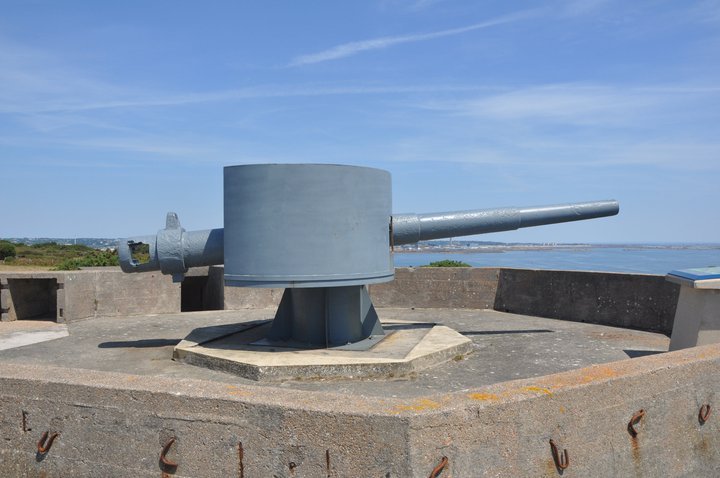
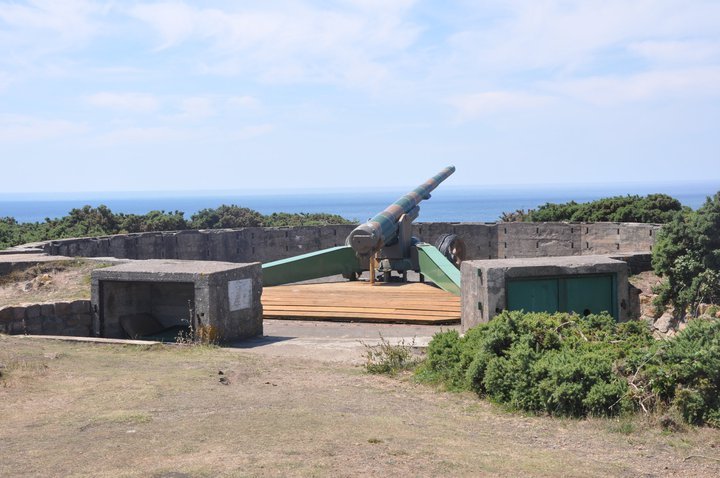
Coastal artillery pieces
Map of artillery ranges
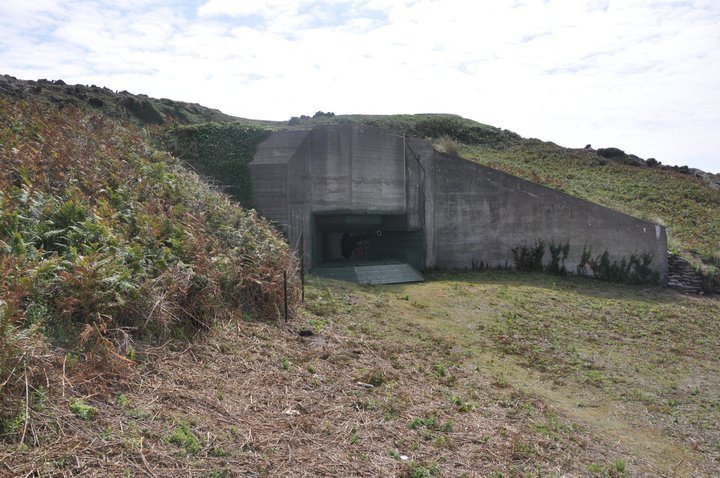
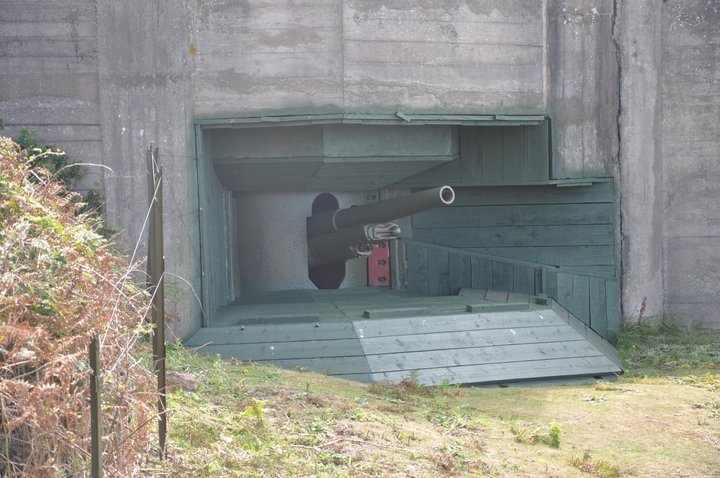
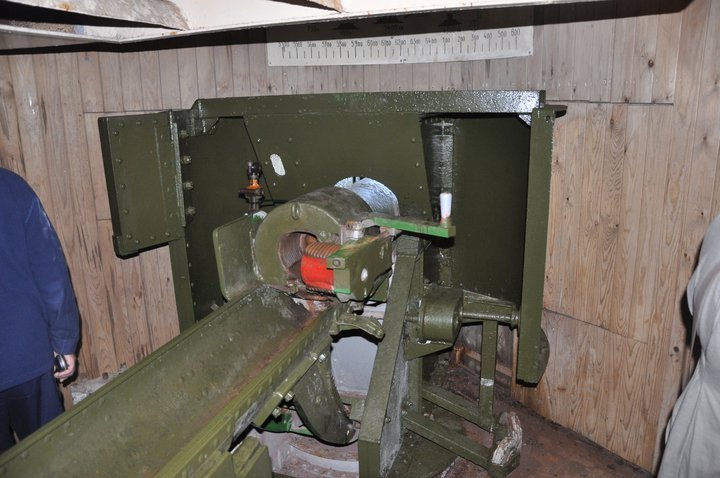
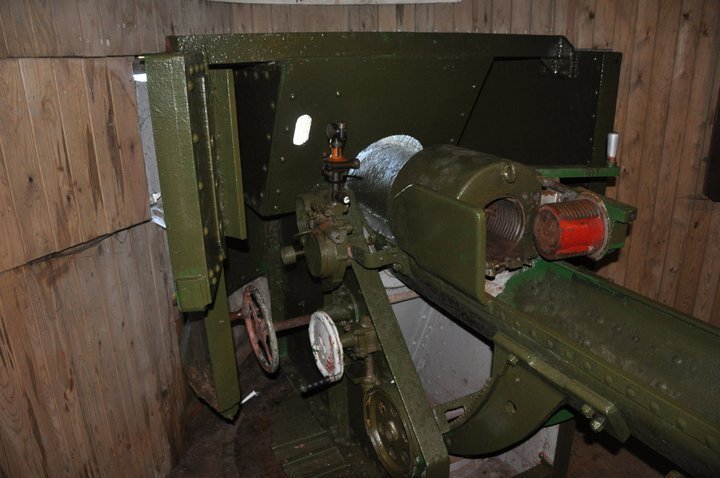
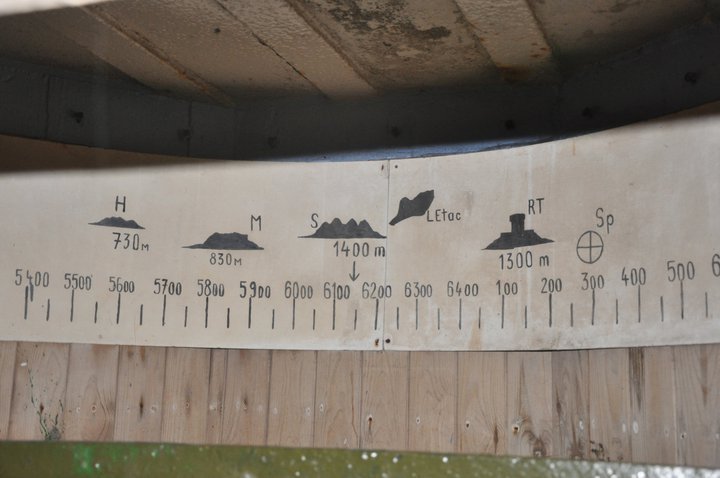
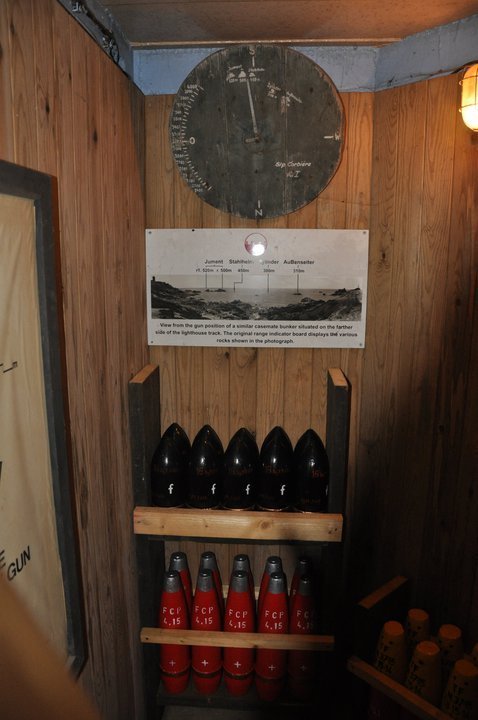
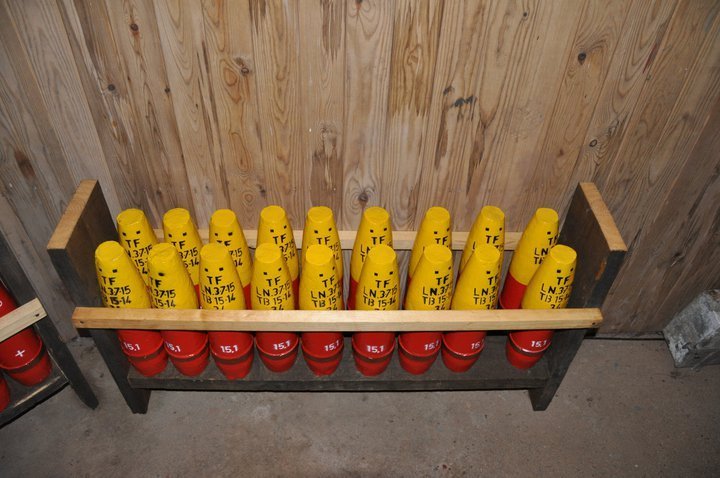
Beach defense artillery with ammunition room and pre-plotted firing locations
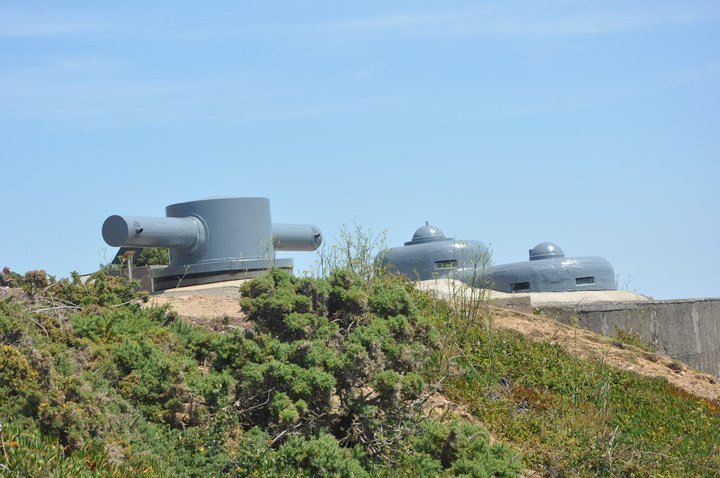
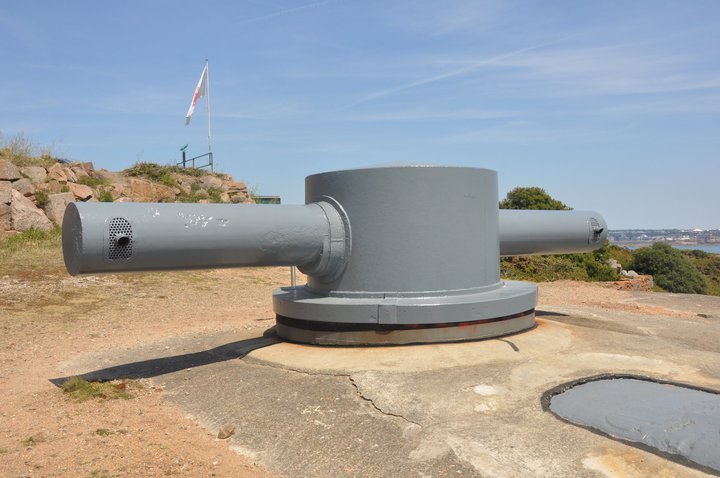
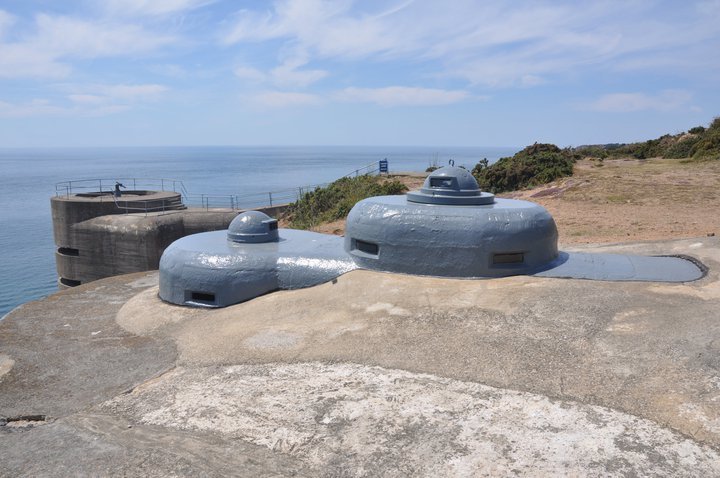

Fire Direction Center bunker with armored range finder and locators
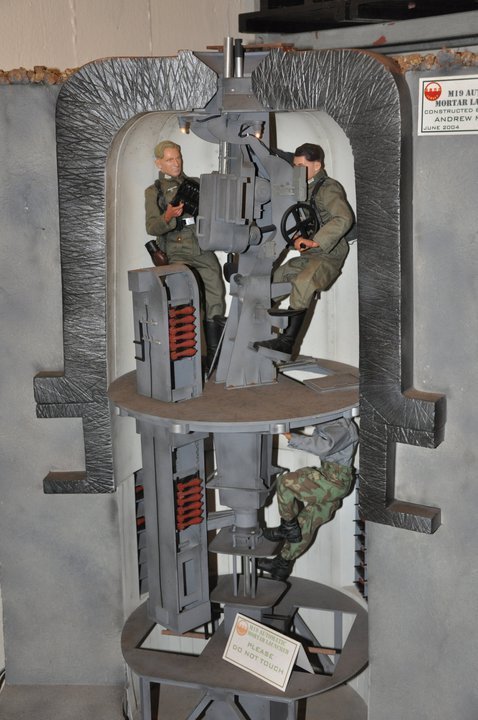

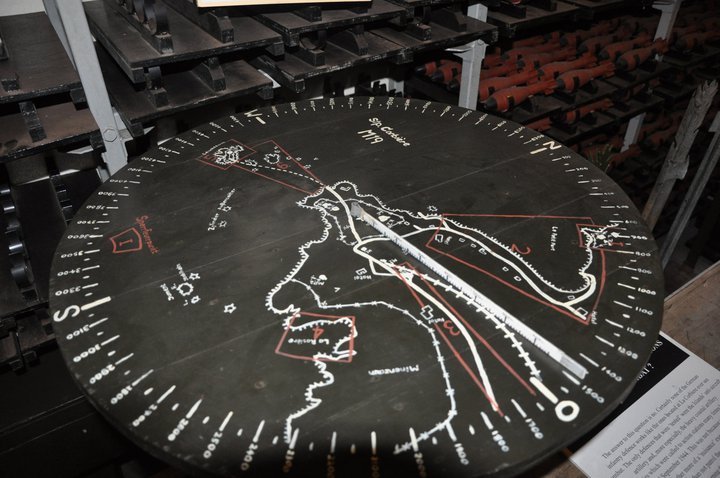
Fully-automatic mortar inside a bunker with ammunition room/elevator and plotting board
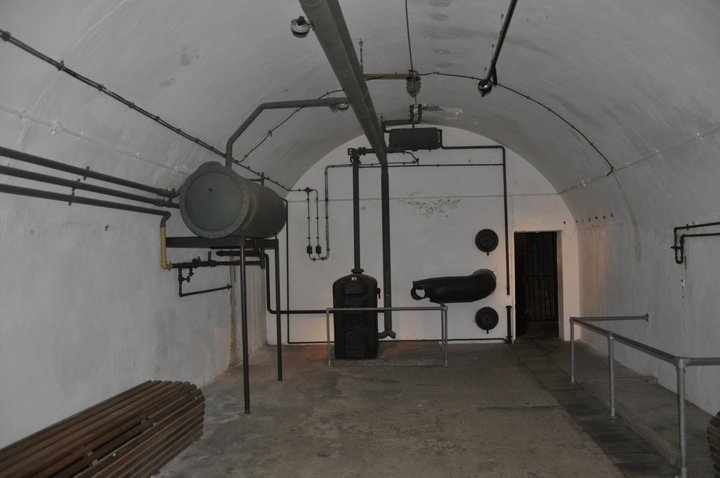

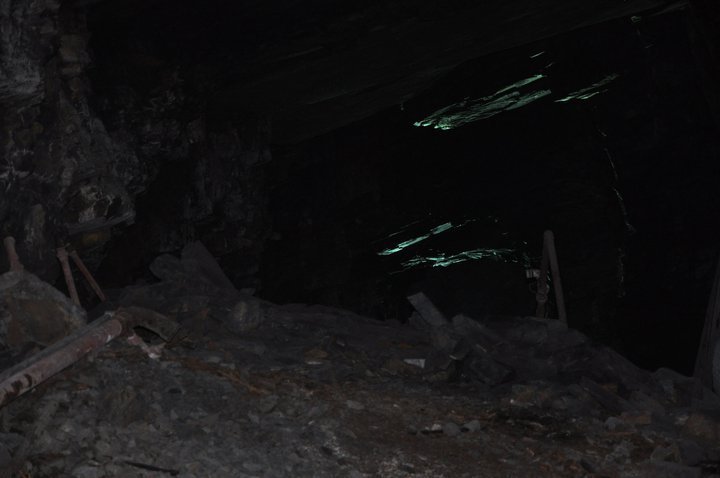
Hospital bunker built into a mountain with an unfinished tunnel
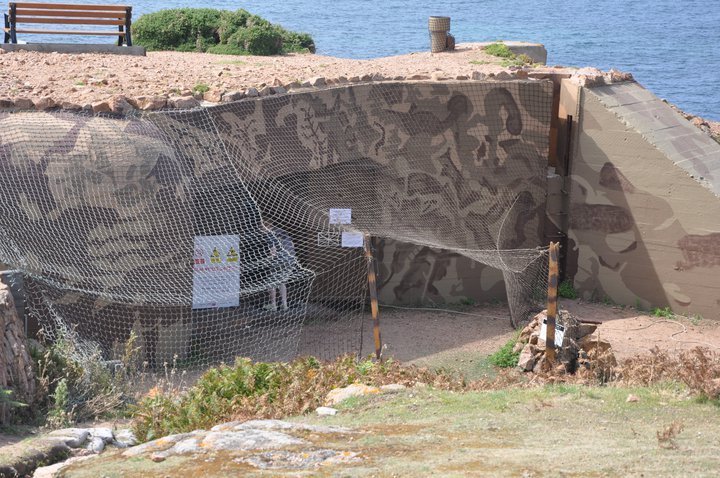



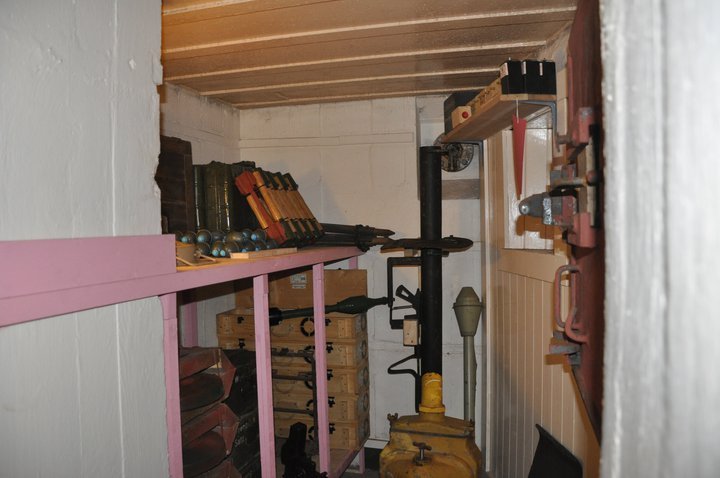
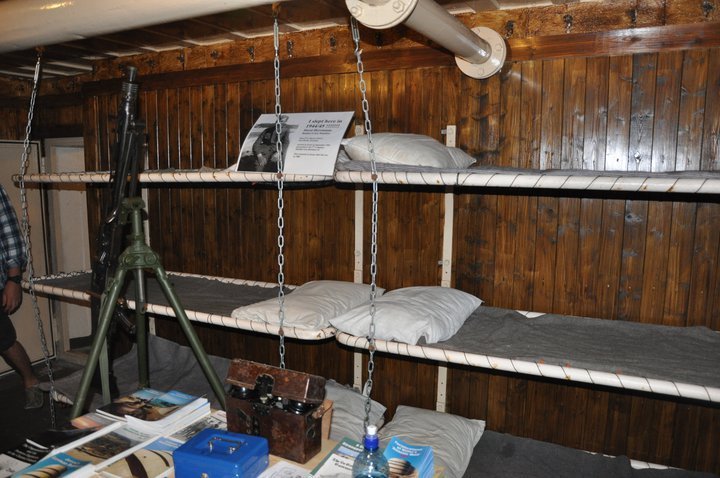
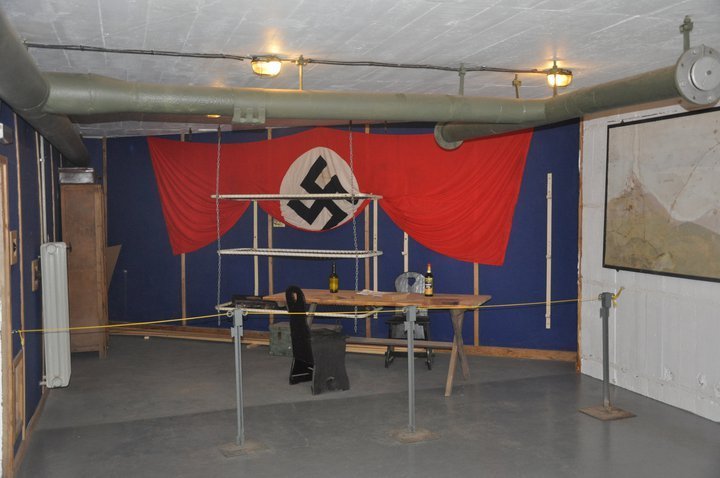
Restored bunker with recreation of living conditions and equipment

Flamethrower mine. Designed to spray burning fuel oil up to 50m
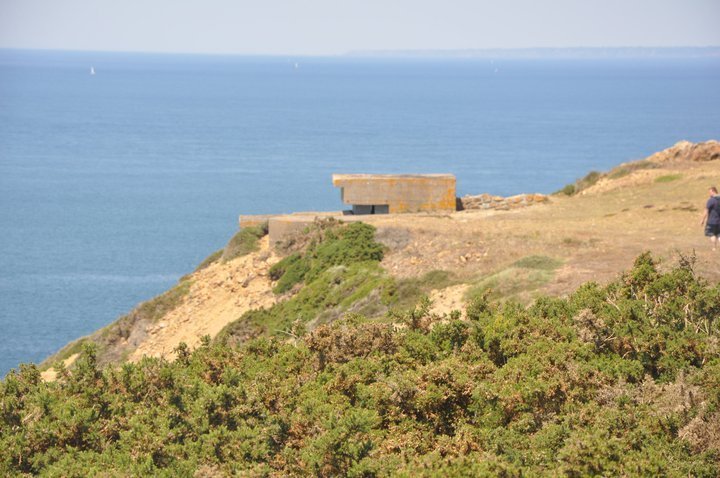
Machinegun bunker with the coast of France visible in the background
